International Relations of the Middle East
Islamic State of Iraq and Syria

A transnational organization that wishes to erect an Islamic Caliphate.
- A large number of foreign fighters
- In control of areas in Syria, Iraq and North Africa.
- Emerges out of American-led de-stabilization in Iraq and the Arab Spring.
Understanding ISIS's emergence
The Precursor to ISIS, Al Qaeda in Iraq different from Al-Qaeda Central
- leader Abu Musab Zarqawi (the same man from Colin Powell's speech!) did not share same goals
- Anti-Shia
- not focused on foreigners but regional government
2003 Invasion of Iraq
Operation Iraqi Freedom: a coalition of states led by the United States instituted an air and ground invasion of Iraq to remove weapons of mass destruction and to topple the regime of Saddam Hussein.
Done without the approval of the United Nations and against the advice of Arab allies in the region.
No Weapons found
estimate cost to the United States: $5 Trillion .
Recent events in Mosul
Conflict in The Quran
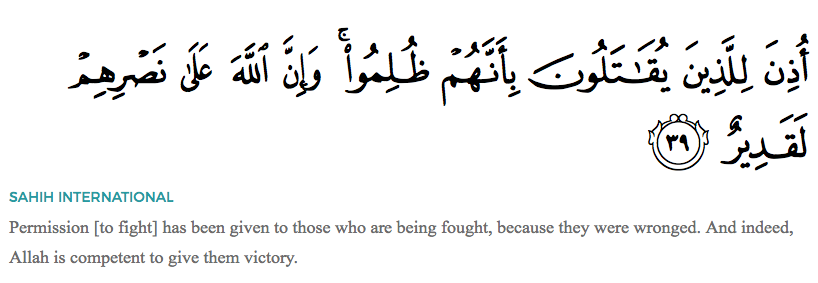
Yet when we read the Quran we see passages that are very violent that describe warfare.
- During the period in which the prophet is communicating the words of God, he is actively fighting:
- Meccans
- threatening tribal communities
- 'hypocrites'
- these sections also highlight
- the reasons to fight
- God's support
- Battle of Badr
- Battle of Uhud

- Jihad as a concept becomes important after the death of the Prophet, during the years of expansion

- The Prophet Muhammad engages in 86 military campaigns during life time
- none of the prophet's campaigns done under the concept of Jihad
- Expansion not geared toward conversion
- jizyah tax needed from non-muslims
- Rapid military conquest aided by the notion of Jihad and attendantly martyrdom
- the rewards of conversion help to gain adherents and encourage fighters.
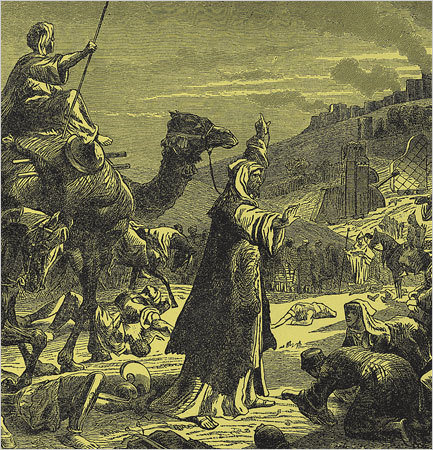
About Martyrdom
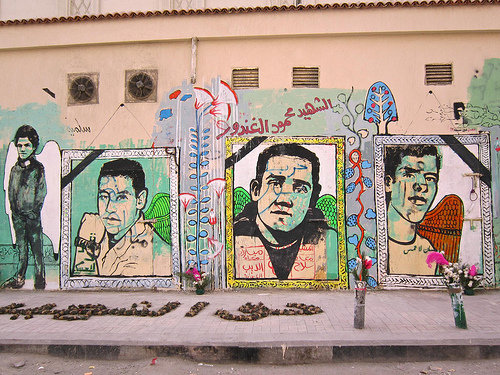
- Historically linked with dying in battle, more specifically, dying for truth or in the 'path of Allah'
- Earthly and heavenly rewards for martyrdom made the title desirable.
- Since 16th century Martyrdom a useless concept.
During the period of Expansion there are supplementary text written on Jihad
Al-Awza'i:
- Jihad can be launched for the protection of Frontiers
- Describes the weapons and the military tactics that can be used by a warrior fighting along frontier lands
Al-Bukhari:
- focuses on heavenly favor for fighting
- must treat animals well
- detachment from earthly desires
9th Century: Codification of principles of Jihad into Shari'a
Dar al-Islam
under Islamic law
Dar al-Harb
Where it is possible to fight
Dar al-Sulh
Land of treaties
Al Hakim al-Tirmidhi
- Needs the permission of an Imam
- no help from polytheists
- prohibits killing children
- harming animals
Al-Haythami
- leaving jihad
- failure to do good
- pride
- cowardice
Evidence that these laws were not always followed.
Jihad الجهاد
Meaning of striving
Lesser Jihad
Conflict and Warfare
Greater Jihad
striving in the path of god in your everyday life
As period of conquests settled, religious scholars increasingly look at Jihad's personal spiritual dimensions.
' Jihad in Warfare "authorized by a legitimate representation of the Muslim community for the sake of an issue that is universally, or nearly universally acknowledged to be of critical importance for the entire community against an admitted enemy of Islam' (Cook, 3)
The Widening of Jihad by thinkers such as Al-Ghazali, Al-Muhasibi, and Ibn Abi al-Dunya (800s):
- Speaking truth to the power of a ruler
- promoting the Quran as the word of God
- pursuing morality (in self and society)
Jihad regains its emphasis on Warfare during the Crusades in the early 1000s and in battles with Mongol invaders (13-1400s)
Additions to Jihad
Ibn Taymiyya: Discerns fighting real muslims versus fake muslims in reference to Mongols
Al wan Sharisi: Entering truces with non-Muslim opponents
Usaman Dan Folio: Discerning 'innovations' from 'true Islam'
18th century: Muhammad abd al-Wahhab Jihadi
- Takfir: renounces shi'as and sufis, they are not true Muslims
- a puritanical version of Islam
- destroys Karbala ( a holy site for Shi'a Islam) and sacred shrines for the prophet
- Ottomans stop the Wahhabis but founder of house of Saud, is a follower. Develops a state on Wahhabi principles in 19th century
The messenger of God

said: "the Muslim
is one from whose tongue and hand the Muslims are safe, and the emigrant is he who abandons what God has prohibited"
--The Book of Hadith
Jihad launched in the 19th and 20th century largely fought against Western domination. They are unsuccessful.
- Russo-Persian Wars (1808-1828)
- Abd al-Qadir (1932-1847) against the French
- Ottomans (1914-1918)
By the end of the Ottoman Empire, the demographics of society and government made it difficult for the empire to launch an effective call for jihad.
Jihad in the 20th century
- Power dynamics switched
- Mohammad Abduh, Rashid Rida and Hassan al Banna: Jihad is defensive, to protect Islam
- Fears that Muslims are straying from their religion and becoming to involved in earthly affairs
- Abu al-ala al Mawdudi: Jihad not about war but calling people to Islam and pursuing justice.


- Western modernity's influence on the Arab world
- morning over the fate of Palestine
- Authoritarian yet popular governments
- failure of moderate muslim leadership
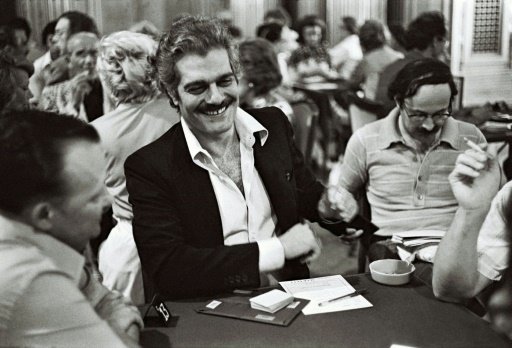
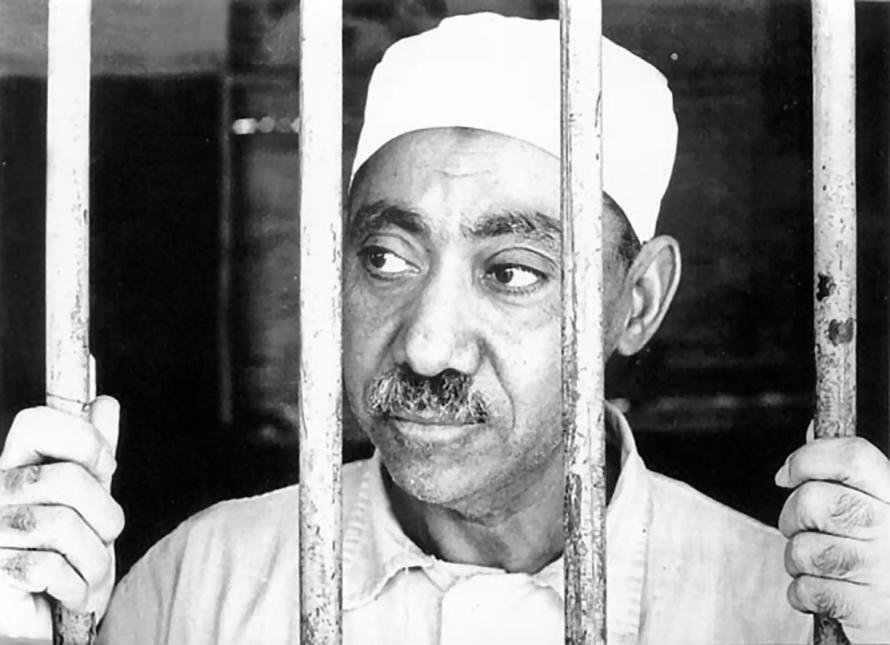
Sayyid Qutb
- 1949-1951 visited the United States and was repulsed by American culture
- Imprisoned by Gamal Abd al Nasser and is eventually killed.
- Famous work Milestones along the Way
- works inspired by authoritarianism, and his own feelings of injustice
- felt that Egypt and muslim societies in general were influenced by the West.
- Muslim world in a period of Jahiliyya
- No other way forward except through Islam

Sayyid Qutb
- There is no problem with Islam being offensive
- not tied to a geographical area
- division between true muslims and those seen as apostates
Assassination of Anwar Sadat

-
The Neglected Duty
- Islam must be globalized to re-establish a caliphate
- Muslim religious leaders are corrupt or apostates
- It is okay to fight muslims, no way to tell who is a true or false muslim.
- Emphasis on fighting
Killed by Al Gammiat al Islamiyya
Violence and the Middle East
By cesmit5
Violence and the Middle East
- 914



